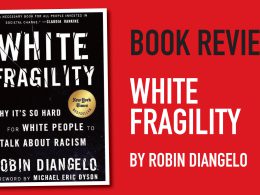By Kate Quinlan and Carla Grainger
We used to call Love Island our guilty pleasure. Now the guilt is doing most of the heavy lifting. What once felt like lightweight reality drama has started to look a lot more like televised coercion. Over time, the tropes started feeling tired – not just because they were repetitive, but because they were painful. Women doing unpaid therapy for men. Men stonewalling until they get applause for saying, “I don’t open up easily.” Real emotions reduced to narrative arcs. And when Women’s Aid publicly warns that the show is normalising emotional abuse, it’s hard to pretend this is just drama anymore.
The villa as a workplace – welcome to the cry-for-pay economy
Beyond the palm trees and pastel swimwear, the Love Island villa functions less like a holiday and more like a high-stakes emotional factory. Contestants are expected to produce a steady stream of content: flirtation, breakdowns, vulnerability, “journeys”. This is their job, even if it’s not formally recognised as one. Their continued presence on the show depends not on genuine emotional connection but on perceived entertainment value and marketability. They are not just competing for love; they’re competing for screen time, storyline dominance, and the chance to be palatable enough for brand deals the moment they’re dumped from the villa. Love Island doesn’t just show us labour – it extracts it, edits it, monetises it, and sells it back to us nightly as drama.
The islanders generate enormous surplus value – their emotions, relationships, and conflicts becoming commodities that drive ITV’s profits and advertising revenue. They have no ownership over the product of their labour: their tears are repackaged in dramatic montages, their personalities flattened into tropes. This is classic alienation. They do the work – the self-branding, the emotional exposure, the narrative heavy lifting – but the product and profit belong to someone else. What’s more, they themselves become the commodity. Through self-commodification, they shape their identities into sellable assets, often going on to secure deals with fast-fashion giants like Boohoo or PrettyLittleThing, industries that mirror the show’s logic of surface-level appeal and exploitative conditions.
Crucially, they do this work without contracts that acknowledge their rights as performers or workers. They are not unionised, often lack industry knowledge or legal representation, and are wholly replaceable: a revolving cast in a system that thrives on disposability. Shows like Temptation Island or Too Hot to Handle increasingly operate on a “celebrity-at-any-cost” model, where exploitation is justified by a contestant’s willingness to participate. But consent under economic pressure isn’t the same as ethical production. Just because someone is willing to trade privacy, dignity, or mental health for a shot at fame doesn’t mean we should be eager to film it. Love Island isn’t just a reality show. It’s an influencer production line.
Unpaid and unseen – women’s emotional labour
If the villa is a workplace, then women are doing the unpaid overtime. Female contestants are consistently positioned as emotional caregivers: they soothe egos, facilitate “growth,” and absorb the fallout of men’s immaturity or emotional unavailability. When boundaries are crossed, it’s the women who are expected to explain, forgive, and self-regulate, lest they be labelled as “dramatic” or “closed off.” This gendered emotional labour isn’t just reality TV editing; it’s a mirror held up to real-world heterosexual dynamics, where women are socialised to manage not just their own emotions but those of their partners, often at the expense of their own well-being.
This is reproductive labour, as Silvia Federici describes it: essential work that capitalism depends on but refuses to pay for. On Love Island, this labour is amplified under the glare of performance. And for women of colour, this burden is compounded: they’re often cast as strong, unbothered, or hyper-resilient, expected to carry both gendered and racialised stereotypes while receiving less emotional validation and screen time. When a Black woman sets boundaries, it’s seen as aggression; when a white man sulks, it’s a “vulnerability arc”. The villa doesn’t just reflect patriarchal structures, it intensifies them for prime-time entertainment.
Love Island is an aggressively conservative text. It functions as a kind of glossy gender ebootcamp, where contestants are rewarded for conforming to tightly policed norms of binary heterosexuality. Women must be sexy but pure, open but not “too needy,” confident but never confrontational. Meanwhile, men are scripted as emotionally unavailable alphas who might one day “open up”, and when they do, they’re instantly granted a redemption arc. Gender here isn’t just visible: it’s performed and commodified.
And when those performances slip (particularly for women) the punishment is swift. Love Island’s history is littered with public shaming and disproportionate moral outrage: Megan Barton-Hanson was crucified by the media for having multiple partners and embracing her sexuality; Zara Holland was stripped of her Miss GB title for having sex on the show, while her male partner faced no repercussions at all. The moral binary is clear: women’s sexual agency is dangerous, deviant, and disqualifying, while men’s is normal – even aspirational.
Bad behaviour, good edit – the male redemption fantasy
One of Love Island’s most insidious patterns is its ability to reframe toxic behaviour as emotional growth. Men lie, cheat, gaslight, emotionally withdraw – and are then framed as complex, struggling heroes the moment they mutter something about “not being good with feelings.” The emotional damage they cause is rarely named, let alone challenged. Instead, women are tasked with managing the fallout. When women react with anger, disappointment, or simply disinterest, they’re framed as overreacting or emotionally unstable. Male fragility is redeemed. Female emotion is punished. The show doesn’t just reflect gendered double standards – it reinforces them, edit by edit, arc by arc.
This redemption arc bias is more than just bad storytelling – it’s dangerous. It normalises patterns of coercive control and emotional manipulation under the guise of “love”. In 2022, over 1,500 Ofcom complaints were lodged in a single week over Dami Hope’s behaviour, yet no serious accountability followed. Instead, he got an apology arc and made it to the final. Women’s Aid has repeatedly condemned the show, writing in their 2025 statement that the show “reinforces a culture that excuses and trivialises violence against women and girls.” The production team doesn’t just ignore red flags, it iron-presses them into storylines.
Love as a commodity
In Love Island, love isn’t felt – it’s performed. Intimacy becomes strategy, vulnerability becomes content, and affection is only as valuable as its potential to go viral. Contestants aren’t building relationships so much as assembling narratives. A convincing couple means more screen time, more fan votes, more brand synergy. The villa rewards those who can convincingly perform the illusion of love – not necessarily those who experience it. Romance is no longer sacred – it’s a spectacle produced, monetised, and served nightly for our viewing pleasure.
But what makes it even more insidious is the fantasy Love Island sells: that love, if played right, leads to freedom. Coupling up and playing the game right will deliver you from your 9-to-5 and into financial independence via PrettyLittleThing and protein powder endorsements. This is false consciousness in full effect. The show frames romantic success as a path to liberation, but it’s not freeing contestants – it’s extracting from them. Emotional labour becomes the price of admission into the influencer economy.
This is commodity fetishism, just as Marx described. Love is stripped of its messy human reality and reimagined as a consumable product with standalone value – something you can “win”, package into a PR relationship, and parlay into a skinny tea promo. Beneath all of this is something bigger: capitalism’s relentless drive to commodify even our most private moments. Intimacy, once a deeply personal exchange, is now something to be performed, recorded, edited, and sold. Love becomes labour, and like all labour under capitalism, it becomes extractable – for profit, for content, for someone else’s bottom line.
Self-policing in the spotlight
Contestants live under 24/7 observation – not just by producers and cameras, but by millions of viewers and, crucially, by themselves. They adapt their behaviour to an imagined gaze, performing what they think will play well: their speech shifts into pre-packaged soundbites, their emotional arcs streamlined into digestible “growth journeys.” They perform idealised versions of themselves not because anyone tells them to, but because they know they’re being watched. In the villa, the watchers are everywhere and nowhere: the public, the producers, the edit. Contestants become both subject and object, regulating themselves in response to invisible expectations.
In earlier seasons, challenges like the infamous Tweet challenge gave contestants direct, often brutal access to how the public perceived them – who was being called toxic or fake. While these challenges have been scrapped, what remains are public votes. The islanders still feel the judgment, but now it’s abstract, ambient, and even more unsettling. They know how they are being evaluated, but not why. This vagueness creates a psychological pressure cooker: instead of adjusting behaviour based on concrete feedback, contestants have to constantly guess what version of themselves is most palatable to an unseen, ever-watching audience. It’s less direct shame, more existential dread – not just “What do they think of me?” but “What should I be thinking they think of me?”
The human cost – mental health and disposable Islanders
Since 2018, three individuals linked to the show – Sophie Gradon, Mike Thalassitis, and Caroline Flack – have died by suicide, prompting public outcry and uncomfortable questions about ITV’s duty of care. While the network responded with a handful of surface-level reforms – pre-show psychological screening, limited aftercare, and media training – these tweaks feel less like genuine protection and more like crisis PR. The structure of the show hasn’t changed: islanders are still placed under intense emotional pressure, manipulated by producers, judged by the public, and then rapidly discarded once their entertainment value runs dry. As former contestants like Amy Hart and Yewande Biala have described, the emotional toll doesn’t end when they leave the villa. It often begins there – in the silence, the trolling, the vanishing support, and the crash from temporary fame to total isolation.
In this system, islanders aren’t people; they’re content pipelines. And like all commodities under capitalism, once their use-value is gone, they are disposable. What Love Island offers isn’t love or even fame – it’s a temporary spotlight powered by emotional exposure, and when the light goes out, mental health becomes collateral damage. The “care” provided isn’t neutral or protective; it exists to maintain the show’s profitability, not to safeguard the people sacrificed for it.
We aren’t just watching – we’re enabling
Love Island isn’t some harmless bit of escapism – it’s a factory churning out toxic masculinity, emotional exploitation, and the recycling of abusive behaviour. And make no mistake: the audience are not innocent bystanders. Every vote cast, every clip shared, every joke made at a woman’s expense fuels this machine. This isn’t just entertainment – it’s ideological indoctrination. We don’t just watch Love Island – we help build its toxic culture.
Capitalism doesn’t just want our money – it wants our emotions, our intimacy, our pain. Love Island packages love as a product to be bought, sold, and discarded, while hiding the wreckage left behind: mental health crises, public shaming, and shattered lives. It’s time to stop cheering for exploitation disguised as entertainment – demand better stories, better treatment, and refuse to be complicit in a system that profits from pain.












